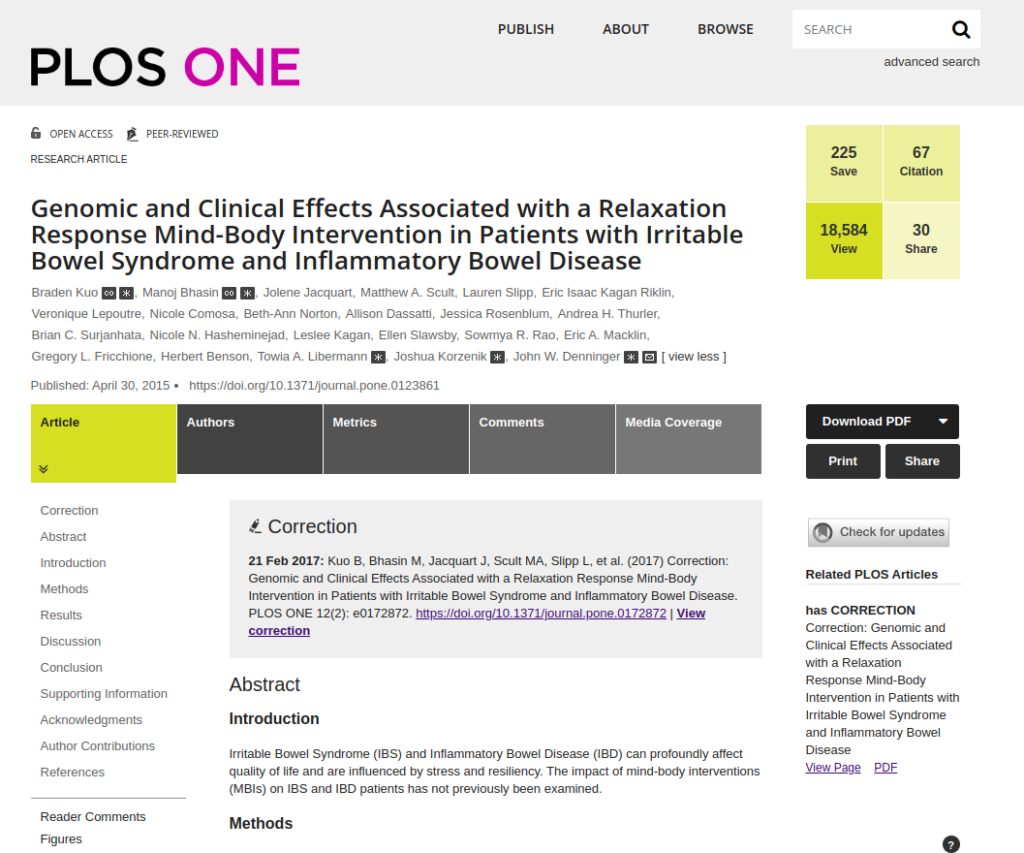Introduction
Irritable Bowel Syndrome (IBS) and Inflammatory Bowel Disease (IBD) can profoundly affect quality of life and are influenced by stress and resiliency. The impact of mind-body interventions (MBIs) on IBS and IBD patients has not previously been examined.
Methods
Nineteen IBS and 29 IBD patients were enrolled in a 9-week relaxation response based mind-body group intervention (RR-MBI), focusing on elicitation of the RR and cognitive skill building. Symptom questionnaires and inflammatory markers were assessed pre- and post-intervention, and at short-term follow-up. Peripheral blood transcriptome analysis was performed to identify genomic correlates of the RR-MBI.
Results
Pain Catastrophizing Scale scores improved significantly post-intervention for IBD and at short-term follow-up for IBS and IBD. Trait Anxiety scores, IBS Quality of Life, IBS Symptom Severity Index, and IBD Questionnaire scores improved significantly post-intervention and at short-term follow-up for IBS and IBD, respectively. RR-MBI altered expression of more genes in IBD (1059 genes) than in IBS (119 genes). In IBD, reduced expression of RR-MBI response genes was most significantly linked to inflammatory response, cell growth, proliferation, and oxidative stress-related pathways. In IBS, cell cycle regulation and DNA damage related gene sets were significantly upregulated after RR-MBI. Interactive network analysis of RR-affected pathways identified TNF, AKT and NF-κB as top focus molecules in IBS, while in IBD kinases (e.g. MAPK, P38 MAPK), inflammation (e.g. VEGF-C, NF-κB) and cell cycle and proliferation (e.g. UBC, APP) related genes emerged as top focus molecules.
Conclusions
In this uncontrolled pilot study, participation in an RR-MBI was associated with improvements in disease-specific measures, trait anxiety, and pain catastrophizing in IBS and IBD patients. Moreover, observed gene expression changes suggest that NF-κB is a target focus molecule in both IBS and IBD—and that its regulation may contribute to counteracting the harmful effects of stress in both diseases. Larger, controlled studies are needed to confirm this preliminary finding.

